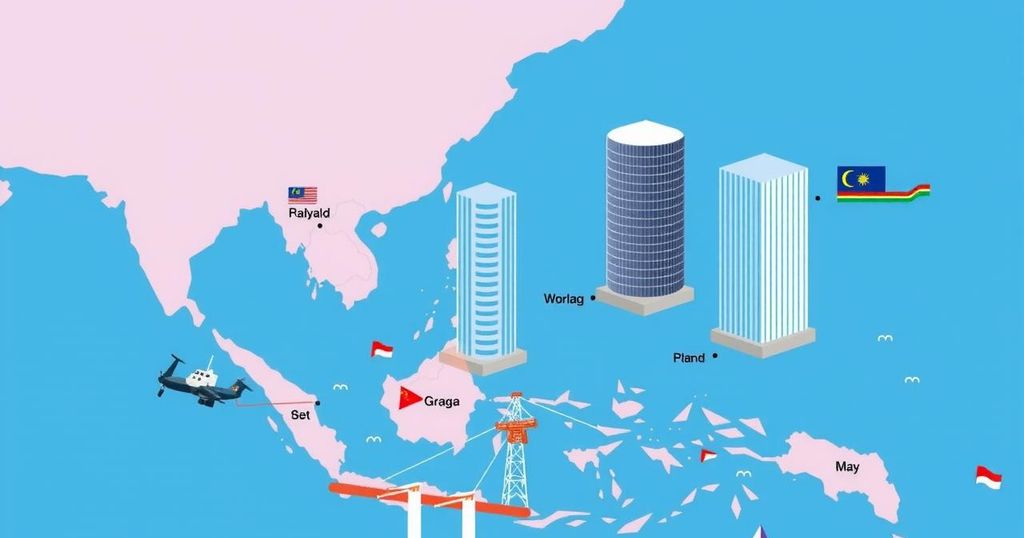Navigating Challenges: Malaysia’s Leadership in ASEAN Under Anwar Ibrahim
Anwar Ibrahim leads Malaysia’s ASEAN chairmanship amid significant trade tensions and geopolitical crises. His diplomatic efforts aim to restore Malaysia’s global stature following years of political turmoil. However, ASEAN’s consensus-driven nature poses challenges for decisive action, with experts questioning the bloc’s effectiveness in addressing pressing issues.
Anwar Ibrahim, aged 77, is currently navigating a crucial period as Malaysia assumes the chair of the Association of Southeast Asian Nations (ASEAN). His leadership follows a tumultuous political landscape that has marked his lengthy career, characterized by resistance and imprisonment. Since his appointment in late 2022, he has focused on restoring Malaysia’s international standing, making noteworthy diplomatic visits to key global players including China, the United States, India, Russia, and Turkey.
The ASEAN bloc, representing the fifth-largest economy globally with a combined GDP of $3.6 trillion and projected growth of 4.5 percent in 2024, faces significant challenges. However, its consensus-driven decision-making process often hampers its ability to take decisive action on critical issues. Critics frequently label ASEAN as a mere “talking shop,” and Malaysia’s term as chair could be subjected to similar scrutiny.
Thomas Daniel, a foreign-policy analyst at Malaysia’s Institute of Strategic and International Studies, emphasized the importance of how the chair manages pressing challenges, stating, “Chairs will be judged by how they manage – or mismanage – hot button issues, of which there are plenty for Malaysia to juggle this year.” This comment captures the precarious position Malaysia occupies in fostering unity and effectiveness within the bloc amidst rising regional tensions.
The current geopolitical climate poses considerable challenges for ASEAN, particularly with rising trade tensions and regional crises. Malaysia’s leadership under Anwar Ibrahim is pivotal as it seeks to enhance Malaysia’s global reputation while managing both internal and external pressures. The focus on foreign relations is vital in addressing the complexities within the region, given ASEAN’s economic significance and the political dynamics at play.
In summary, Malaysia’s chairmanship of ASEAN under Anwar Ibrahim comes at a critical juncture marked by significant economic potential and geopolitical challenges. The effectiveness of Malaysia’s leadership will largely depend on its ability to navigate complex issues and garner cooperation among member states. With regional and global scrutiny on the bloc’s capacity for decisive action, Anwar’s diplomatic experience will be crucial for addressing the hot-button topics that await his administration.
Original Source: www.scmp.com




Post Comment